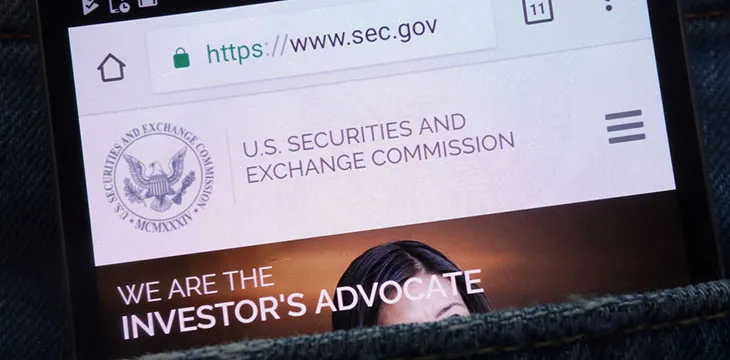|
Getting your Trinity Audio player ready...
|
Gary Gensler, chairman of the U.S. Securities and Exchange Commission, gave testimony on Wednesday requesting an increase in the agency’s budget to help combat “misconduct” in the digital asset space.
Appearing before the Subcommittee on Financial Services and General Government, Gensler presented his agency’s Fiscal Year (FY) 2024 budget request of $2.436 billion, a 12% increase on the previous year.
Gensler justified this request by citing the “tremendous growth and change in our markets. More people than ever are participating – trading and using tools and technologies that were unavailable even a few years ago.”
He went on to suggest that “such growth and rapid change also means more possibility for wrongdoing”—particularly in the digital asset space.
“We’ve seen the Wild West of the crypto markets, rife with noncompliance,” said Gensler, who pointed to “misconduct” in the crypto industry as a major factor in the more than 750 enforcement actions the SEC brought in 2022.
The 12% budget increase was necessary, Gensler said, to respond to growth in financial markets, notably crypto markets, and the mounting risk of misconduct that comes with this. The requested increase amounts to roughly $286 million more than the SEC’s 2023 FY budget of $2.15 billion, which itself was $240 million more than the agency sought in FY 2022.
A large part of the requested funding increase would go towards bolstering the SEC’s staff, or full-time equivalents (FTE)—FTE is a unit to measure employed people that makes them comparable even though they may work a different number of hours per week.
Gensler stated in his testimony that the SEC hopes to increase its FTEs to 5,139 in 2024 FY, up from 4,685 in 2023 FY, which ends in October—the fiscal year (FY) for the U.S. government runs from October 1 to September 30.
These additional resources, Gensler stated, would strengthen the SEC’s ability to “protect American families by addressing risks in the crypto markets, cyber and information security, and the resiliency of critical market infrastructure.”
In the wake of 2022’s crypto scandals, and the collapse of several tech-banks this year, the SEC has been increasingly active, upping the tempo of prosecutions and charges against digital asset players. Most recently, earlier in March, the agency warned Coinbase about imminent action for violating securities law; and attempted to block Binance’s acquisition of Voyager’s assets, claiming it violates the unregistered sale of securities laws.
The SEC’s notorious regulation by enforcement approach is not to everyone’s taste, particularly the less government interventionist Republicans who now hold Congress. Tom Emmer, the Republican Congressman for Minnesota and House Majority Whip, has accused Gensler’s approach to the digital asset industry of “stifling innovation,” and more recently suggested that excessive post-FTX crash enforcement, influenced by an anti-crypto government agenda, has led to further negative consequences, including the downfall of tech-banks.
So it remains to be seen whether Gensler’s request for a bigger budget will meet with a warm or frosty reception, but from the SEC chair’s point of view at least, it is a justified request: “As the cop on the beat, we must be able to meet the match of bad actors. Thus, it makes sense for the SEC to grow along with the expansion and increased complexity in the capital markets.”
Watch: What’s next for digital asset exchanges and investment?

 07-03-2025
07-03-2025 





